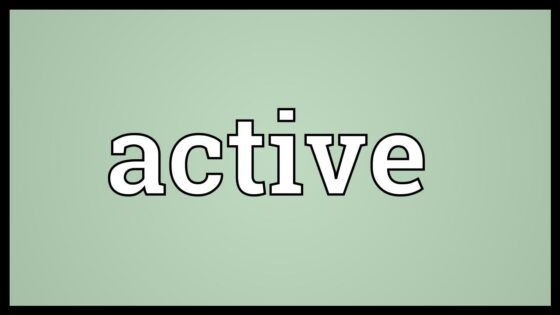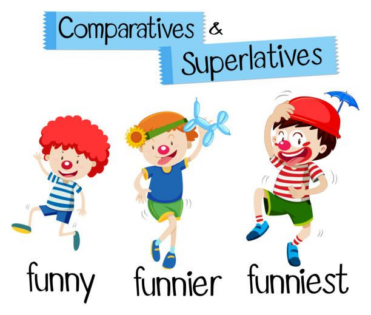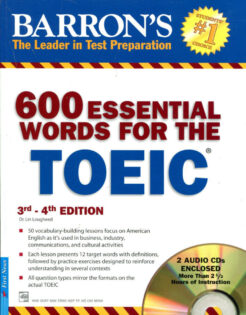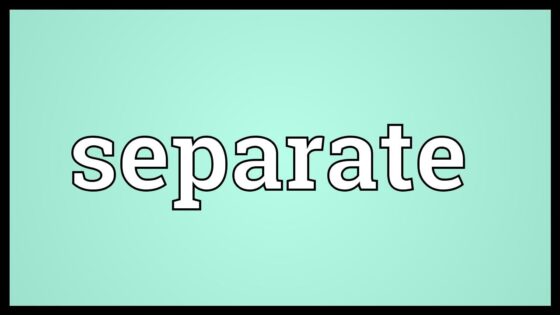Kiến thức trọng tâm ôn tiếng Anh -P6- thầy Cucku. Thầy cucku là một thầy giáo dạy tiếng Anh rất có tâm và học phí rẻ , thầy có nhận dạy online nhé các bạn
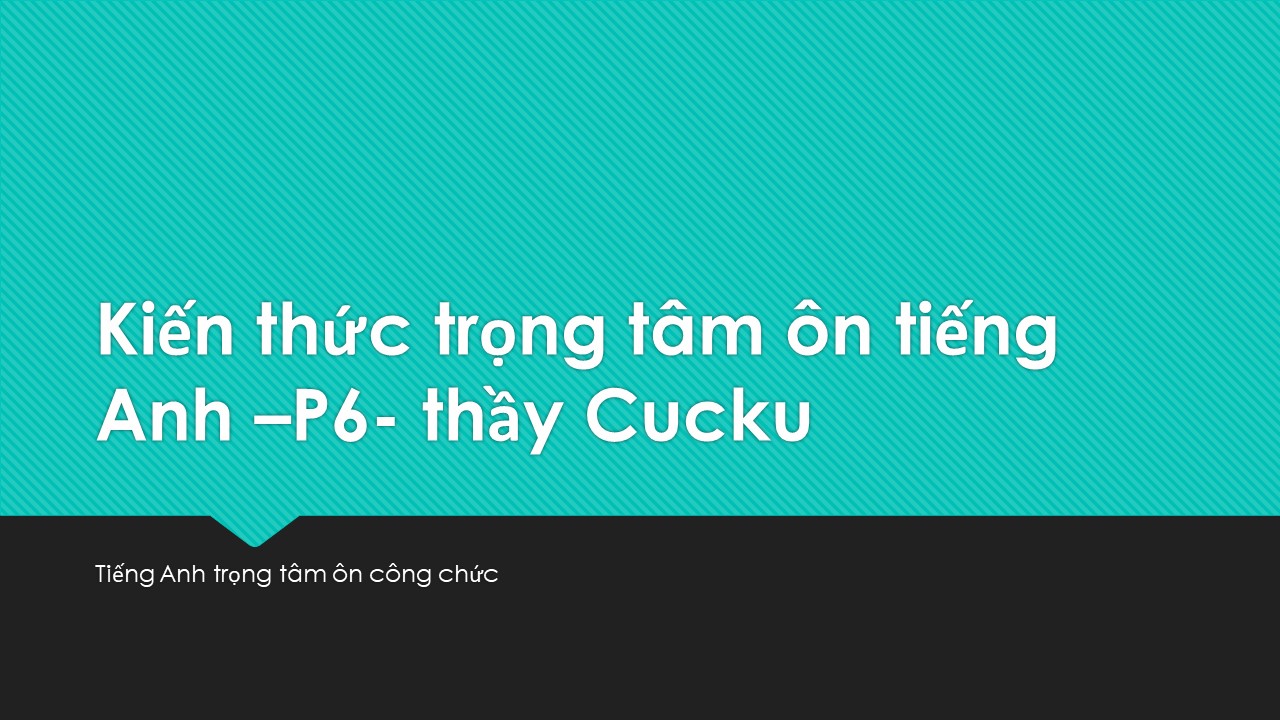
Nội dung chính:
USED TO
USED TO: (Đã từng)
S + USED TO + INF. |
Công thức:
– Để chỉ hành động xảy ra ở quá khứ mà bây giờ không còn nữa.
I used to smoke: Tôi từng hút thuốc (Bây giờ không còn hút nữa)
There used to be a river here: Đã từng có một con sông ở đây.
BE/GET USED TO (Quen)
Công thức :
S (người ) + GET/BE + USED TO + VING /N |
Để diễn tả rằng chủ từ quen với sự việc đó.
I am used to getting up late on Sundays: Tôi quen dậy trễ vào chủ nhật.
I am used to cold weather: Tôi quen với thời tiết lạnh.
Dùng be khi sự việc quen đã có sẵn.
Dùng get khi chỉ một quá trình quen dần dần.
It took me one year to get used to living here. (Tôi mất 1 năm để quen với việc sống ở đây.)
Nếu thấy thì tương lai thì biết là sự việc đó hiện tại vẫn chưa quen.
Don’t worry! You will get used to living here soon: Đừng lo, bạn sẽ sớm quen với việc sống ở đây thôi.
BE USED TO (Được sử dụng để)
Công thức:
S (thường là vật) + BE + USED TO + INF. |
Đây là thể bị động của động từ use với nghĩa là: Sử dụng
A knife is used to cut the cake: Một con dao được sử dụng để cắt bánh.
USE (Sử dụng)
Công thức:
S + USE + N (to inf.) |
I use a knife to cut it: Tôi sử dụng một con dao để cắt nó.
Tóm tắt: USED TO CÓ 4 CÔNG THỨC CẦN NHỚ SAU ĐÂY:
Không BE: nguyên mẫu
GET: thì Ving
BE người: Ving
BE vật: nguyên mẫu
EXERCISES
Chia động từ trong ngoặc.
Jane had to get used to …………………… (drive) on the left.
We used to …………………… (live) in a small village but now we live in London.
Tom gets used to …………………… (drink) a lot of coffee.
This knife is used …………………… (cut) fruits.
I wouldn’t like to share an office. I’m used to …………………… (have) my own office.
I used to …………………… (have) a car but I sold it a few months ago.
When we were children, we used to …………………… (go) swimming every day.
There used to …………………… (be) a cinema here but it was knocked down a few years ago.
I’m the boss here! I’m not used to …………………… (be) told what to do.
Is the man you met yesterday used to …………………… (live) here?
CÂU ĐIỀU KIỆN
Cấp độ cơ bản
Loại 1: Công thức:
IF S + V (hiện tại) , S + WILL (CAN, MAY) + V (nguyên mẫu) |
Cách dùng:
Chỉ sự việc có thể xảy ra ở hiện tại hoặc tương lai.
Ví dụ: If it is sunny, I will go fishing. (Nếu trời nắng, tôi sẽ đi câu)
Loại 2: Công thức:
IF S + V (quá khứ), S + WOULD (COULD, MIGHT) + V (nguyên mẫu) |
(Be thường dùng were dù chủ từ số ít hay nhiều)
Cách dùng:
Chỉ sự việc không thể hoặc khó có thể xảy ra ở hiện tại hoặc tương lai.
Ví dụ: If I were you, I would go abroad. (Nếu tôi là bạn, tôi sẽ đi nước ngoài)
Loại 3: Công thức:
IF S + HAD + P.P , S + WOULD (COULD, MIGHT) HAVE + P.P |
Cách dùng:
Chỉ sự việc đã không xảy ra ở quá khứ.
Ví dụ: If I hadn’t been absent yesterday, I would have met him. (Nếu hôm qua tôi không vắng mặt thì tôi đã gặp anh ta rồi) => Nhưng thực sự tôi đã vắng mặt.
LƯU Ý:
+ Unless = if … not: Trừ phi
+ Đảo ngữ trong câu điều kiện:
Bên mệnh đề có if, chữ had trong loại 3, chữ were trong loại 2 và chữ should trong loại 1 có thể đem ra đầu câu thế cho if.
(Should đôi khi có thể dùng trong loại 1 với nghĩa làm cho câu mơ hồ hơn).
Ví dụ: – If he should call, …. (Nếu mà anh ta có gọi, …) => Không biết có gọi hay không.
= Should he call,…. (Nếu mà anh ta có gọi, …)
– If I were you, …
= Were I you, ….
– If she hadn’t gone there, …..
= Had she NOT gone there,…..
Các dạng bài tập về câu điều kiện (cấp độ cơ bản)
1) Dạng chia động từ:
Ở cấp độ cơ bản thông thường đề bài chia động từ 1 vế và yêu cầu chia vế còn lại.
Ví dụ: If I meet him, I (give) him this book.
Nhìn thấy câu đề cho bên if là thì hiện tại nên ta biết đó là loại 1 nên ta chia loại 1:
If I meet him, I will give him this book.
Câu điều kiện loại 4.
Công thức:
Bên if: had + V3
Bên không có if: would + V nguyên mẫu
Dấu hiệu: khi vế sau thường có now
Ví dụ: If you had not spent too much yesterday, you would not be broke now. (Nếu hôm qua bạn không xài quá nhiều tiền thì hôm nay đâu có sạch túi như vầy)
2) Dạng VIẾT LẠI CÂU:
Ta làm 2 việc sau: NÓI NGƯỢC + LÙI THÌ
Tóm tắt:
Có quá khứ thì dùng loại 3
Vế đầu loại 3, vế sau có NOW thì dùng loại 4
Bên if không có will/would
Bên không có if phải có would/will
EXERCISES
Chọn câu đúng:
I’d have gone swimming yesterday afternoon if I …………….….. time.
had had B. have had C. had D. would have had
What would you do if you …………….….. a million pounds?
win B. won C. will win D. had won
If you didn’t do this, you …………….….. punished.
should B. will be C. are D. would be
If he had told me the truth, I …………….….. him.
would not punish B. would not have punished
would have not punished D. will not punish
If they had not given me advice, I …………….….. again.
wouldn’t fail B. would fail
would have been failed D. would have failed
If it …………….….. , the match will be postponed
will rain B. has rained C. is raining D. rains
Bill …………….….. more photographs if he …………….….. more film.
would take / had had B. would have taken / had
would take / has had D. would have taken / had had
If there …………….….. no floods last year, the crop …………….….. better.
had been / would have been B. were / would be
had / would have been D. was / would have been
Had you told me that this was going to happen, I …………….….. it.
hadn’t believed B. don’t believe
would never have believed D. can’t believe
If I …………….….. you, I’d get some rest before the game tomorrow.
were B. could be C. am D. had been
If someone …………….….. into the store, smile and say, “May I help you?”
could come B. came C. come D. comes
If I had a chance to do creative work, I …………….….. happy working in an office.
would be B. will be C. would have D. will feel
. …………….….. you, I’d think twice about that decision.
If I had been B. Were I C. Should I be D. If I am
If they …………….….. soon, I’m not going to wait.
won’t come B. don’t come C. hadn’t come D. didn’t come
If I …………….….. hungry, I …………….….. something. But I am not hungry now.
had been / would eat B. had been / would have eaten
were / would eat D. were / would have eaten
You won’t pass the examination …………….….. you study more.
unless B. as C. if D. whether
Tell him to ring me if you …………….….. him.
see B. saw C. have seen D. had seen
Unless she …………….….. , she’ll be late.
hurried B. didn’t hurry C. hurries D. doesn’t hurry
Would George be angry if I …………….….. his bicycle without asking?
take B. took C. had taken D. would take
I ……………… you a postcard while I was on holiday if I ………….….. your address.
would have sent / had had B. would have sent / had
would send / had D. would send / had had
I’d have visited you if I …………….….. you …………….….. in hospital.
knew / had been B. have known / were
had known / are D. had known / were
…………….….. still my friend if I were put in prison?
Would you are B. Will you be C. Would you D. Would you be
If anybody …………….….. a question, please ask me after class.
have B. has C. don’t have D. doesn’t have
If I weren’t working for an accounting firm, I …………….….. in a bank.
would be working B. will work C. have worked D. work
…………….….. the address, I would have gone there.
If I knew B. If did I know C. If had I known D. Had I known
If I …………….….. somebody else, I …………………… a film star.
would be/were B. could be/would be C. become/will be D. were/were
What …………….….. if they …………….….. tomorrow?
will you do / don’t come B. would you do / don’t come
would you have done / won’t come D. do you do / won’t come
He said, “…………….….. watch TV all the evening if you wish.”
You need to B. You have to C. You may D. You should
If he …………….….. , please tell me.
comes B. won’t come C. will come D. come
If the earth …………….….. move around the sun, everything …………….….. floated.
don’t / would be B. doesn’t / will be C. didn’t / will be D. didn’t / would be
If I …………….….. that you were in hospital, I …………….…..
knew / would have visited B. had known / would visit
knew / would visit D. had known / would have visited
If he had taken my advice, he …………….….. a rich man now.
would be B. would have been C. had been D. were
Unless you …………….….. smoking, you …………….….. better.
stop / won’t feel B. stop / will feel
stopped / will feel D. stopped / would feel
It is a beautiful house, and I …………….….. it if I …………….….. enough money, but I cannot afford it.
would have bought / had had B. will buy / have
would buy / had D. shall buy / have
If you are right, I …………….….. wrong.
am B. will be C. would be D. would have been
If I …………….….. to the party last night, I …………….….. tired now.
went / would be B. had gone / would have been
had gone / would be D. went / would have been
…………….….. immediately, I will call a policeman.
If you leave B. Unless you leave
If you didn’t leave D. Unless you left
He would be happy if she …………….….. here now.
were B. is C. would be D. be
If I could speak Spanish, I …………….….. next year studying in Mexico.
would have spent B. would spend
had spent D. will spend
If the weather …………….….. fine, we will start early.
was B. be C. is D. will be
It would have been a much more serious accident …………….….. fast at the time.
had she been driving B. was she driving
she had driven D. she drove
“Can I borrow your car for this evening?” _ “Sure, but Nora is using it right now. If she …………….….. it back in time, you’re welcome to borrow it.”
brought B. would bring C. will bring D. brings
II.Viết lại câu dưới dạng câu điều kiện:
He doesn’t have the money and he cannot afford a new car.
If
Susan felt sick because she ate 4 cream cakes.
If
We didn’t know your phone number, so we could not contact you.
If
The price of petrol was raised last month, so car sales have dropped again.
If
I cannot go to the beach with you this weekend because I have a date with my old classmates.
If
She didn’t hurry, so she missed the train.
If
I never get very lonely because I have lots of good friends.
If
We didn’t go on holiday because we didn’t have enough time.
If
We got lost because we didn’t have a map.
If
The match can be cancelled because it rains heavily.
If
He lost all his money because he wasn’t careful.
If
Because Simon doesn’t live near his mother, he can’t visit her often.
If
You got into so much trouble because you didn’t listen to me.
If
There are so many bugs in the room because there isn’t a screen on the window.
If
He is busy right now, so he can’t help them.
If
I can’t make all of my own meals because I am not good at cooking.
If
I’m not you, so I can’t tell him the truth.
If
She came, so he wasn’t disappointed.
If
He is not a good student. He didn’t study for the test yesterday.
If
I didn’t eat breakfast several hours ago, so I am hungry now.
If
Mai is sick because she didn’t follow the doctor’s orders.
If
He is tired this morning because he didn’t go to bed early last night.
If
CHIA ĐỘNG TỪ
Nguyên tắc căn bản:
CÓ CHỦ TỪ => ĐỘNG TỪ CHIA THÌ.
KHÔNG CÓ CHỦ TỪ => ĐỘNG TỪ KHÔNG CHIA THÌ mà phải chia DẠNG.
Xem ví dụ sau:
when he saw me, he (ask) me (go) out.
Xét động từ ask: Nhìn phía trước nó có chủ từ he vì thế ta phải chia thì – Ở đây chia thì quá khứ vì phía trước có saw.
Xét đến động từ go, phía trước nó là me là túc từ nên không thể chia thì mà phải chia dạng – Ở đây là to go, cuối cùng ta có: when he saw me, he asked me to go out.
Động từ một khi không chia thì sẽ mang 1 trong 4 dạng sau đây:
– bare inf (động từ nguyên mẩu không có to)
– to inf (động từ nguyên mẫu có to)
– Ving (động từ thêm ing)
– V3
Tùy theo cấu trúc câu mà ta chi dạng cho phù hợp:
1) MẪU V. O .V
Là mẫu 2 động từ đứng cách nhau bởi 1 túc từ.
Công thức chia mẫu này như sau:
Nếu V1 là: MAKE, HAVE (Ở dạng sai bảo chủ động), LET
thì V2 là Bare inf.
Ví dụ: I make him go.
I let him go.
Nếu V1 là các động từ giác quan như: HEAR, SEE, FEEL, NOTICE, WATCH, OBSERVE…
thì V2 là Ving (hoặc bare inf )
Ví dụ: I see him going /go out.
Ngoài 2 trường hợp trên chia to inf.
2) MẪU V.V
Là mẫu 2 động từ đứng liền nhau không có túc từ ở giữa.
Cách chia loại này như sau: Nếu V1 là:
CAN, COULD, MAY, MIGHT, WILL, WOULD, SHOULD, MUST, SHALL, WOULD RATHER, HAD BETTER. Thì V2 chia nguyên mẫu.
Nếu V1 là:
KEEP, ENJOY, AVOID, ADVISE, ALLOW, MIND, IMAGINE, CONSIDER, PERMIT, RECOMMEND, SUGGEST, MISS, RISK, PRACTICE, DENY, ESCAPE, FINISH, POSTPONE, MENTION, PREVENT, RECALL, RESENT, UNDERSTAND, ADMIT, RESIST, APPRECIATE, DELAY, EXPLAIN, FANCY, FEEL LIKE, TOLERATE, QUIT, DISCUSS, ANTICIPATE, PREFER, LOOK FORWARD TO, CAN’T HELP, CAN’T STAND, NO GOOD, NO USE,……BUSY/ WORTH
Thì V2 là Ving
Ví dụ: He avoids meeting me
Lưu ý: Danh sách trên chỉ áp dụng cho câu chủ động, nếu câu bị động thì động từ không chia Ving mà vẫn phải chia to inf.
Ví dụ: They allowed sitting there.
They were allowed to sit there.
3) Riêng các trường hợp sau vừa có thể đi với to inf hoặc Ving tùy theo nghĩa:
a) BEGIN, START
Cả 2 động từ này có thể đi với Ving hoặc to inf. mà không có thay đổi nhiều về nghĩa.
STOP
+ Ving: Nghĩa là dừng hành động Ving đó lại.
Ví dụ: I stop eating (Tôi ngừng ăn).
+ To inf: Dừng lại để làm hành động to inf đó.
Ví dụ: I stop to eat (Tôi dừng lại để ăn).
REMEMBER, FORGET
+ Ving: Nhớ (quên) chuyện đã làm
I remember meeting you somewhere last year (Tôi nhớ đã gặp bạn ở đâu đó hồi năm ngóai).
+ To inf :
Nhớ (quên ) để làm chuyện gì đó.
Ví dụ: Don’t forget to buy me a book: Đừng quên mua cho tôi quyển sách nhé (Chưa mua).
REGRET
+ Ving: Hối hận chuyện đã làm.
I regret lending him the book: Tôi hối hận đã cho anh ta mượn quyển sách.
+ To inf: Lấy làm tiếc để ……
Ví dụ: I regret to tell you that. (Tôi lấy làm tiếc để nói với bạn rằng) => Chưa nói – bây giờ mới nói.
TRY
+ Ving: Thử
Ví dụ: I try eating the cake he makes (Tôi thử ăn cái bánh anh ta làm).
+ To inf: Cố gắng để …
Ví dụ: I try to avoid meeting him (Tôi cố gắng tránh gặp anh ta).
NEED, WANT
NEED nếu là động từ đặc biệt thì đi với Bare inf.
Ví dụ: I needn’t buy it (Khi need có thể thêm not vào thì nó là động từ đặc biệt).
NEED là động từ thường thì áp dụng công thức sau:
-Nếu chủ từ là người thì dùng to inf.
Ví dụ: I need to buy Tôi cần mua nó. (Nghĩa chủ động).
-Nếu chủ từ là vật thì đi với Ving hoặc to be P.P
The house needs repairing (Căn nhà cần được sửa chửa)
= The house needs to be repaired.
MEAN
Người => TO
Vật => ing
GO ON
Go on + Ving: Tiếp tục chuyện đang làm.
After a short rest, the children go on playing (Trước đó bọn chúng đã chơi)
Go on + to V: Tiếp tục làm chuyện khác.
After finishing the Math problem, we go on to do the English exercises.
4) Các mẫu khác
HAVE difficulty /trouble / problem + Ving
WASTE / SPEND time /money + Ving
KEEP + O + Ving
PREVENT + O + Ving
FIND + O + Ving
CATCH + O + Ving
5) Các trường hợp TO + Ving
Thông thường TO đi với nguyên mẫu nhưng có một số trường hợp TO đi với Ving (Khi đó TO là giới từ), sau đây là một vài trường hợp TO đi với Ving thường gặp:
Be/get used to
Look forward to
Object to
To be accustomed to
Confess to
6) Sau giới từ, sở hửu dùng Ving.
Ví dụ: I think of going out with him.
7) Ngoài các công thức trên ta dùng TO INF.
Tóm tắt:
Có chủ từ => chia thì
Không có chủ từ => chia dạng
Chia dạng phải xem là mẫu V V hay V O V
EXERCISES
1. Chia động từ trong ngoặc.
1. That was a very strange question (ask)………………..
2. It was very kind of you (show)……………….the way.
3. The teacher let him (stay) ……………….at home to finish the assignment.
4. It was quite a surprise (see) ……………….him again.
5. She stood there and watched him (drive) ……………….away.
6. It was very difficult for her (drive)………………. the motorbike.
7. I could feel the robber (come) …………… from the backdoor.
8. I suddenly remembered (forget) ………………. my keys.
9. I heard him (say) ………………. that he didn’t want to learn Math.
10. Don’t forget (tell) …………………. him about that.
11. Mrs. Brown expects (be) …………………. consulted about any revisions in her manuscript.
12. Jane gave a good speech that I couldn’t insist on (applaud) ……………….loudly when she finished.
13. Tommy admitted (throw) ……………….the rock through the window.
14. Paul really didn’t mind (surprise) ……………….by the party to celebrate this fortieth birthday.
15. Anne hoped (invite) ……………….to join the private club.
16. Most people enjoy (travel) ……………….to different parts of the world.
17. Do you want (watch) ……………….more of this programme?
18. It is easy (see) ……………….animals on the road in daylight.
19. I asked him (explain) ……………….but he refused (say) ……………….anything.
20. It is pleasant (sit) ……………….by the fire at night.
21. There was no way of (get) ……………….out of the building except by (climb) ……………..down.
22. It’s no good (write) ……………….to him; he never answers letters.
23. Ask him (come) ………………. in. Don’t keep him (stand) ……………….at the door.
24. We watched the children (jump) ………………from a window and (fall) ………………. down the ground.
25. He practiced (speak)……………….English every day.
26. After eating lunch, we went on (do) ……………….homework.
27. We stopped once (buy) ……………….petrol and then we stopped again (ask) ………………. someone the way.
28. When I caught them cheating me, I stopped (buy) ……………….it.
29. I tried (convince) ……………….him that I can (manage) ……………….on my own, but he insisted on (help) ……………….me.
30. Your hair needs (cut) ……………….You’d better (have) ……………….it (do) ………………. tomorrow.
31. I always try (come) ……………….in quietly but they always hear me (go) ……………….upstairs. It’s impossible (climb) ……………….an old wooden stair case at night without (make) ………………. noise.
32. They don’t allow (smoke) ……………….in the class; they don’t want (risk) ………………. (set) ……………….it on fire.
33. Would you like me (turn) ……………….down the radio a bit?
No, it’s all right. I’m used to (work) ……………….with the radio on.
34. Would your children mind (keep) ……………….quiet for a moment? I’m trying (fill) ……………….a form.
35. My father advised me (read) ………………. this novel.
36. Does she want (become) ………………. a singer?
37. The teacher recommends (prepare) ……………….the lessons well before (come) ……….to class.
38. Can you help me (find) ……………….my mistakes?
39. They didn’t permit (camp) ……………….in this wood.
40. Nothing will make me (change) ……………….my mind.
41. Parents often recommend their children (not drink) ……………….too much.
42. The lord had the gardener (plant) ……………….trees (get) ……………….shadow.
43. She was afraid (tell) ……………….her parents the truth.
44. Jack suggested (take) ………..me one flat. But Tom advised me (sell)………….the whole house.
45. They let us (park) ………………motorcycles here but they don’t allow us (park)…………….. cars.
46. If you want the milkman (leave) ……………….your milk in the morning, don’t forget (put) ……………….a milk bottle outside.
47. Could I (see) ……………….Mrs. Brown, please?
48. He told me (try) ………………. (come) ……………….early.
49. I wanted her (learn) ……………….English.
50. Will you (help) ……………….me (move) ……………….this box?
51. Please (let) ……………….me (know) ……………….your opinion.
52. Would you like (paint) ……………….your bike or should I (have) ……………….a painter (do) ……………….it for you?
53. He warned me (not come) ……………….late.
54. There’s no use (tell) ……………….what might (happen) ……………….
55. Did you (see) ……………….Tom (try) ………………. (reach) ……………….the top of the shelf?
– He’s too short (reach) ……………….it.
56. We had to (ask) ………………the students (stop)………………. (make)……………….so much noise.
57. I can’t understand her (want) ………………. (buy) ……………….such an expensive car.
58. I couldn’t stand (be) ……………….alone in the dark room.
59. They don’t want us (mention) ………………. (buy) ……………….that car.
60. You must remember (lock) ……………….the door before (leave) ……………….the house.
61. The children are busy (collect) ……………….shells on the beach.
62. The teacher promised (help) ……………….us (prepare) ……………….for the examination.
63. We regret (say) …………….that the lecture was dull and wasn’t worth (listen) ……………. to.
64. He enjoys (listen) ……………….to his own voice.
65. It’s no use (ask) ……………….him (borrow) ……………….some money.
66. Can you manage (finish) ………………. (write) ……………….these reports by yourself?
67. He advised me (consider) ……………….all the facts before (decide) ………………. (accept) ……………….the job.
68. They refused (allow) ………………us (go) ………………in without (sign) ………………the book.
69. My uncle used to (show) ……………..me where (go) ………………and what (buy) ………………
70. You needn’t (do) ……………….this exercise.
71. Your doctor advised (go) ……………….to bed early, so I can’t understand your (want) ………………. (stay) ……………….up late.
72. We considered (give) ……………….her a dress for her birthday, but couldn’t help (buy) ……………….her some flowers, too.
73. I remember (hear) ……………….him (say) ……………….the grass needed (cut) ……………….
74. We couldn’t help (laugh) ……………….when he was making fun of himself.
75. Tom has advised (reread) ……………….the story once again.
76. We did not attempt (tell) ……………….lies as we knew him very well.
77. Martha asked me if I fancied (go) ……………….to the party.
78. The principal ordered him (stop) ………………. (shout) ……………….
79. The man threatened (crash) …………….….. the vase.
80. I cannot delay (write) ……………….to him any longer.
CÂU TƯỜNG THUẬT
MỨC ĐỘ CƠ BẢN
PHẦN 1 Các thay đổi về nội dung
- Thay đổi về người:
TÔI đổi thành NGƯỜI NÓI.
BẠN đổi thành NGƯỜI NGHE.
TÔI ở đây được hiểu là bao gồm tất cả các đại từ nào mà dịch ra tiếng việt có chữ TÔI trong đó, bao gồm: I: tôi (chủ từ), my: của tôi, me: tôi (túc từ). Tương tự chữ BẠN cũng vậy, bao gồm: you: bạn (chủ từ), your: của bạn, you: bạn (túc từ).
Lưu ý là khi đổi thành người nghe hay người nói thì ta phải dùng đại từ chứ không lặp lại tên hay danh từ.
Ví dụ: My mother said to me “I will give you a present.”
My mother said to me she would give me a present.
BẢNG ĐẠI TỪ
CHỦ TỪ | TÚC TỪ | CỦA | NGHĨA |
I | ME | MY | Tôi |
YOU | YOU | YOUR | Bạn, các bạn |
SHE | HER | HER | Cô ấy |
HE | HIM | HIS | Anh ấy |
WE | US | OUR | Chúng tôi, chúng ta |
IT | IT | ITS | Nó |
THEY | THEM | THEIR | Họ, chúng |
2) Thay đổi về thời gian:
Now => then
Tomorrow => the next day / the following day
Next => the next
Yesterday => the day before / the previous day
Ago => before
Last + thời điểm => the + thời điểm before
Today => that day
3) Thay đổi về nơi chốn:
Here => there
This => that
These => those
4) Thay đổi về thì:
Nếu động từ tường thuật bên ngoài dấu ngoặc ở quá khứ thì khi thuật lại lời nói trong ngoặc ta phải giảm thì.
Giảm thì là lấy động từ gần chủ từ nhất giảm xuống 1 cột. Ví dụ cột 1 thì giảm thành cột 2, (Không phải là động từ bất qui tắc thì thêm ed), cột 2 thì giảm thành cột 3 (riêng cột 3 không đứng 1 mình được nên phải thêm had phía trước)
Ví dụ: She is => she was
She goes => she went (cột 2 của go là went)
She went => she had gone (vì gone là cột 3 nên phải thêm had vào phía trước gone)
She will be => she would be (chỉ cần lấy 1 động từ gần chủ từ nhất là will để giảm thì chứ không lấy be)
GHI CHÚ: 6 trường hợp không lùi thì:
- Bên ngoài ngoặc V chia HT
- Hết cột để lùi.
- Có năm quá khứ
She said” I was born in 1999”
She said she was born in 1999.
- Lùi thì rồi
“If I were you,…”
- Trong mệnh đề thời gian (qk)
She said” I went out when I saw him”
She said she had gone out when she saw him.
- Chân lí, sự thật:
Ta xem sơ đồ tóm tắt sau đây:
Câu phát biểu | Bên ngoài ngoặc | Bên trong ngoặc |
Người nói said to/told người nghe | Giữ nguyên cấu trúc | |
Câu mệnh lệnh | Người nói asked/told người nghe | (not) to + V nguyên mẫu |
Câu hỏi yes/no | Người nói asked người nghe | Đổi sang câu thường Thêm if/whether đầu câu |
Câu hỏi có chữ hỏi | Người nói asked người nghe | WH + Đổi sang câu thường
|
Tóm tắt:
Luôn nhớ 3 thay đổi cơ bản: người- nơi chốn- thời gian
– Lùi thì
– Câu hỏi thì phải mất (ô vuông)
My mother said to me “will I give you a present.”
My mother asked me if/ whether she would give me a present.
Tổng hợp: ( Làm bài nhớ ghi rõ thuộc dạng nào trong 4 dạng trên)
- “Listen carefully “, he said to us. PB
- “Don’t wait for me if I’m late”, Ann said to him. ML
- “Shut the door but don’t lock it”, she said to us. YES/NO
- Mary said to me “, When did you pick Ann up?” WH
- “The clock will never work again if you try to repair it”, the man said.
- “Did you phone me yesterday?” Tom asked Mary.
- She asked him, “Have you read this book?”
- Lan said “I’ve already done my homework”
- The girl said, “I’m thinking of going to live in Canada”.
- Hoa asked, “What do you do in your free time, Tom?”.
- Tom said, “Go out but not to speak to anyone”
- Their daughter said, “I haven’t seen Bill for a while”.
- She said, “I’ve been playing tennis a lot recently”
- Peter said, “Margaret has had a baby”.
- Minh said, “I don’t know what Nam is doing”.
- Tuan said, “I hardly ever go out these days”.
- Hien said, ‘”I work 14 hours a day”.
- Nga said, “I’ll tell Jim I saw you”
- Mrs. Mai said, “You can come and stay with me if you are ever in London”.
- The woman said, “I had an accident last week but I wasn’t injured”.
The woman said SHE HAD had an accident last week but I wasn’t injured”.
- Mr. Smith said, “I saw jack at a party a few months ago and he seemed fine”.
- “Stay in bed for a few days”, the doctor said to me.
- “I’ll come with you as soon as I am ready,” she replied.
- “Please don’t tell my mother what happened”, Ann said to me
……………………………………………………………………………………….
- “Why does the price go up so often?” she wondered.
……………………………………………………………………………………….
- “How can I get from the station to the airport?” said Bill.
……………………………………………………………………………………….
- “Don’t drive too fast,” she LI him.
- “Don’t lean your bicycles against my windows, boys,” said the shopkeeper.
……………………………………………………………………………………….
- “Come to the cinema with me,” he asked her.
……………………………………………………………………………………….
- “What were you doing when I saw you?”
She asked me…………….



